Advanced ACL Reconstruction for Effective Recovery
Get advanced ACL reconstruction with experienced orthopedic surgeons. Restore knee stability, strength, and mobility effectively.
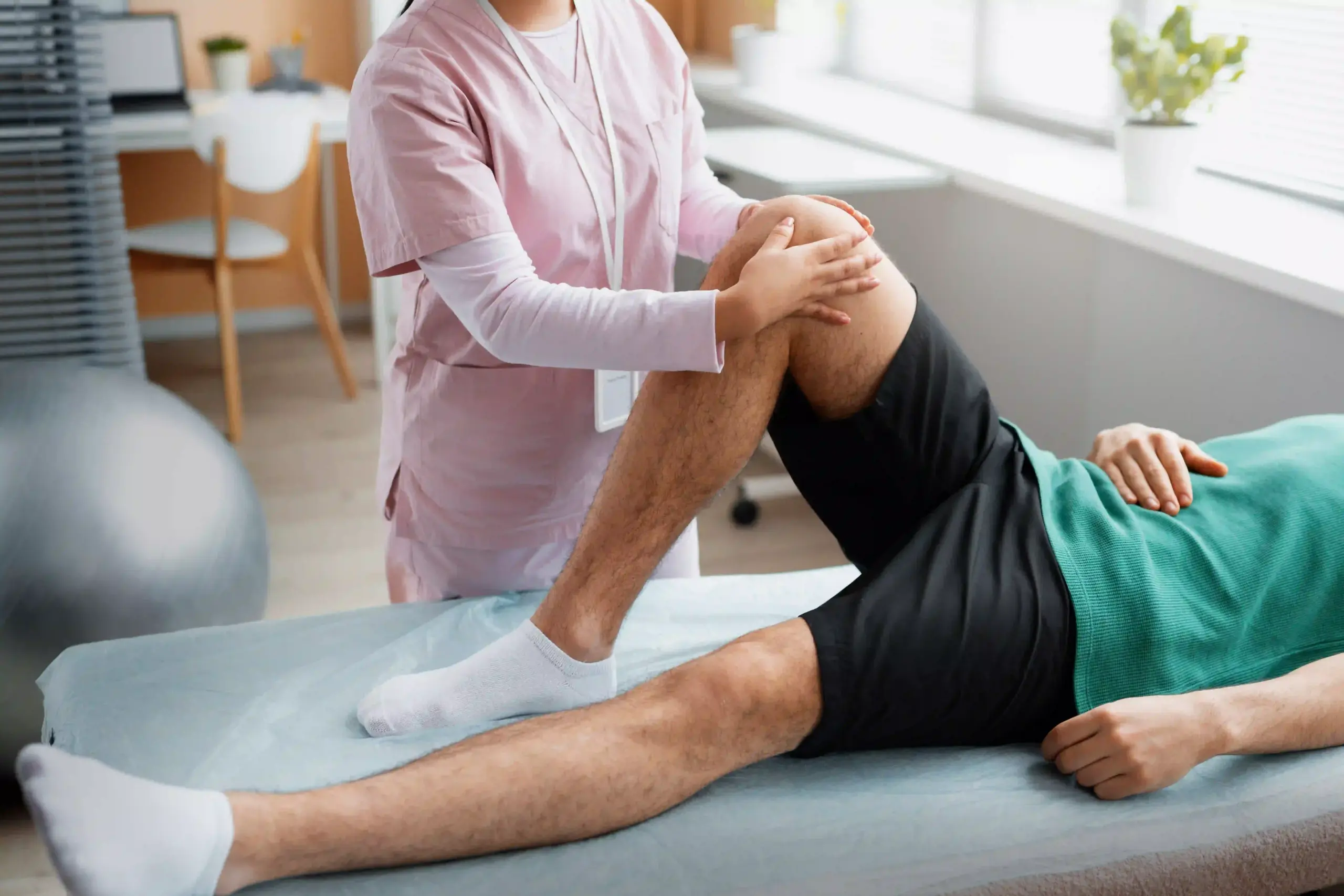
ACL Reconstruction
Anterior Cruciate Ligament (ACL) Reconstruction is a surgical procedure designed to replace a torn ACL, which is one of the major ligaments in the knee. The ACL plays a key role in stabilizing the knee joint, preventing it from excessive forward motion and rotational movements. ACL injuries are common in athletes, particularly those who engage in sports that involve sudden stops, jumps, or changes in direction.
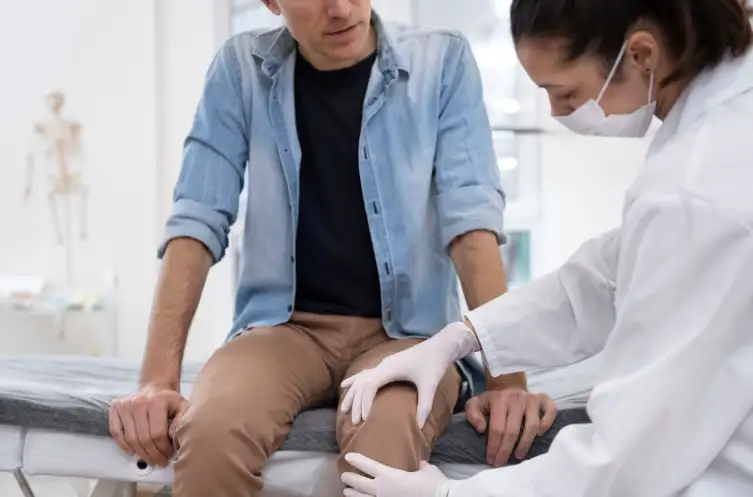
Early Detection Saves Lives
Early detection and treatment are crucial for improving the chances of survival. If you notice any concerning symptoms, consult a healthcare provider immediately.
Signs and Symptoms
Knee Instability
A feeling that the knee will "give out" during physical activities.
Severe Pain
A sudden sharp pain at the time of injury, particularly in sports involving twisting or pivoting.
Swelling
Rapid swelling within the first few hours after the injury due to bleeding within the knee joint.
Limited Range of Motion
Difficulty bending or straightening the knee.
Popping Sensation
Many individuals report hearing or feeling a "pop" at the time of injury.
Bruising
Discoloration around the knee, a result of internal bleeding.
Difficulty Walking
Patients often have trouble bearing weight on the injured leg due to pain and instability.
Blood in Urine
Hematuria - pink, red, or dark urine, the most common symptom
Frequent Urination
Feeling the need to urinate frequently, even when bladder is not full
Painful Urination
Experiencing pain or burning sensation while urinating
Back or Pelvic Pain
Pain that occurs as the cancer grows and spreads
Unexplained Weight Loss
Significant weight loss not related to diet or exercise
Fatigue
Feeling unusually tired or weak without a clear cause
Meet Our Expert ACL Reconstruction Specialists
Risk Factors
Smoking
Smoking is one of the leading causes of bladder cancer. Chemicals in tobacco smoke can damage the lining of the bladder, increasing the risk.

Gender
Men are at a higher risk of developing bladder cancer than women.

Chronic Bladder Infections or Inflammation
Conditions such as bladder infections and long-term bladder inflammation can increase the risk.

Exposure to Chemicals
Prolonged exposure to certain chemicals, especially those used in the dye industry, rubber production, and chemical manufacturing, increases the risk.

Age
Younger athletes, especially those between the ages of 15 and 45, are more prone to ACL injuries.

Gender
Women are more likely to experience ACL injuries than men, potentially due to anatomical and hormonal differences.

Sports Participation
Sports such as football, basketball, soccer, and skiing that require cutting, pivoting, or rapid direction changes have a higher risk of ACL injury.

Previous Injury
Having a previous ACL tear increases the risk of re-injury in the future.
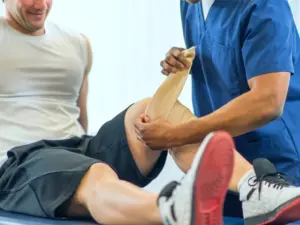
Improper Technique
Poor sports technique, especially in jumping and landing, can contribute to ACL damage.

Lack of Strength
Weak muscles surrounding the knee can fail to protect the ACL during physical activity.
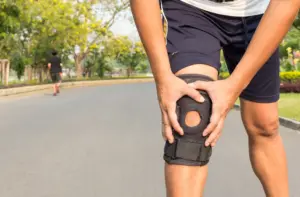
Difficulty Walking
Patients often have trouble bearing weight on the injured leg due to pain and instability.
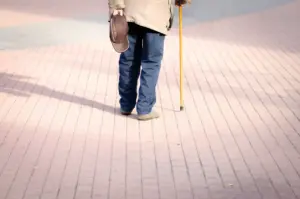
ACL Reconstruction
Diet and Nutrition
Prevention
Diagnosis
Key Services
Key Facilities
Diet and Nutrition for ACL Injury Recovery:
- Protein-Rich Foods: Protein is essential for tissue repair and muscle recovery. Include lean meats, legumes, fish, and dairy in your diet to promote healing.
- Anti-inflammatory Foods: Incorporating foods like salmon, turmeric, and leafy greens can help reduce inflammation and promote healing of the injured knee.
- Vitamin C: This vitamin helps in collagen formation, essential for healing. Consume citrus fruits, strawberries, and bell peppers for adequate Vitamin C intake.
- Calcium and Vitamin D: Bone health is crucial for ACL recovery. Ensure adequate intake of calcium (found in dairy and fortified plant-based milk) and Vitamin D (from sunlight and fortified foods).
- Hydration: Staying hydrated is vital for tissue repair and reducing swelling post-surgery.
- Omega-3 Fatty Acids: Found in fish like mackerel and sardines, these can help with reducing inflammation and promoting healing.
- Iron: Ensure that your diet is rich in iron, particularly after surgery to avoid anemia. Include lean meats, spinach, and lentils.
Prevention of ACL Injuries:
- Proper Warm-Up: Engage in a proper warm-up routine before physical activities, focusing on flexibility and strengthening exercises.
- Strength Training: Strengthen the quadriceps, hamstrings, and calf muscles to support the knee joint. This helps prevent strain on the ACL.
- Plyometric Training: Use training drills that improve landing mechanics, agility, and coordination to reduce stress on the ACL.
- Avoid Overuse: Give your body time to rest and recover between training sessions or games to reduce the risk of injury.
- Correct Landing Techniques: Learn to land properly when jumping or pivoting, avoiding putting excess pressure on the knee.
- Wear Proper Footwear: Ensure that footwear provides sufficient support and grip for the specific sport or activity you’re engaging in.
- Proper Technique: Athletes should be trained on techniques such as cutting, pivoting, and jumping to avoid excess strain on the knee ligaments.
Diagnosis
- Physical Examination: A trained healthcare professional will assess the knee through tests like the Lachman test, Anterior Drawer test, and Pivot Shift test to check for signs of ACL damage.
- MRI (Magnetic Resonance Imaging): An MRI is the most effective way to confirm an ACL tear by providing detailed images of the knee’s soft tissue.
- X-rays: While ACL injuries do not show up on X-rays, they can help rule out bone fractures or other issues that might be contributing to knee pain.
- Arthroscopy: In some cases, an arthroscope may be used to directly view the knee joint and assess the damage to the ACL.
Key Services for ACL Reconstruction
- Preoperative Assessment: Includes a detailed examination, imaging studies (MRI/X-ray), and medical history review to assess the patient’s readiness for surgery.
- Surgical Treatment: ACL reconstruction surgery is performed using minimally invasive techniques (arthroscopy), where the damaged ligament is replaced with a graft, often from the patient’s own tissue (autograft) or a donor (allograft).
- Postoperative Rehabilitation: Physical therapy following surgery is critical for restoring strength, mobility, and stability to the knee. A structured rehab plan is crucial for optimal recovery.
- Pain Management: Medication and physical therapy to manage pain and swelling during recovery, including modalities like ice, compression, and elevation.
- Regular Follow-Up: Continuous monitoring and follow-up visits to track recovery and adjust rehabilitation plans as necessary.
Key Facilities for ACL Reconstruction
- Specialized Orthopedic Surgeons: Ensure you are treated by a surgeon with experience in ACL reconstruction for the best outcome.
- State-of-the-Art Surgical Facilities: The use of advanced surgical tools, including arthroscopic equipment, ensures minimally invasive procedures with faster recovery times.
- Physical Therapy Centers: Access to well-equipped rehab facilities with professional physiotherapists skilled in post-ACL reconstruction recovery.
- Diagnostic Imaging: High-quality MRI and X-ray equipment for precise diagnosis and surgical planning.
- Pain Management Services: Access to comprehensive pain management strategies to ensure comfort during recovery.
Top Medical Facilities at Our Multispeciality Hospital – Here’s What Makes Us Different!
Ready to Begin Your ACL Reconstruction Journey? – Expert Knee Care
Learn More About ACL Reconstruction Procedures
Frequently Asked Questions
Recovery time from ACL reconstruction varies depending on the individual’s health and commitment to rehabilitation. Typically, it takes 6-9 months for athletes to return to their previous level of activity. Physical therapy plays a significant role in reducing recovery time.
Most patients can begin walking with crutches within the first few days after surgery. Full weight-bearing activities, however, should only be resumed once advised by the surgeon, typically around 6-8 weeks post-surgery.
Yes, with proper rehabilitation and physical therapy, most individuals are able to return to sports after ACL reconstruction. However, the return to high-impact sports like football or basketball is typically allowed after 6-9 months of recovery.
